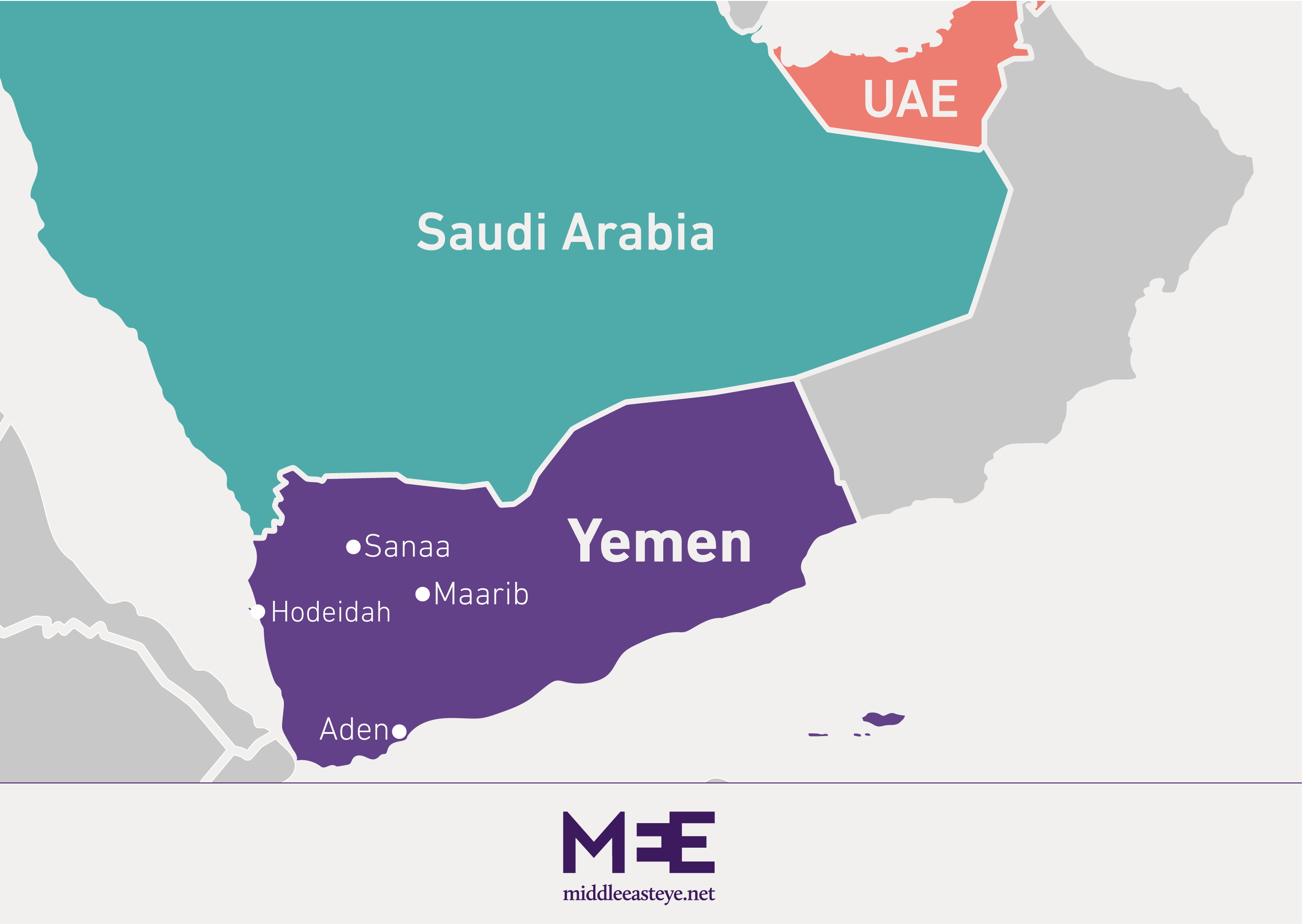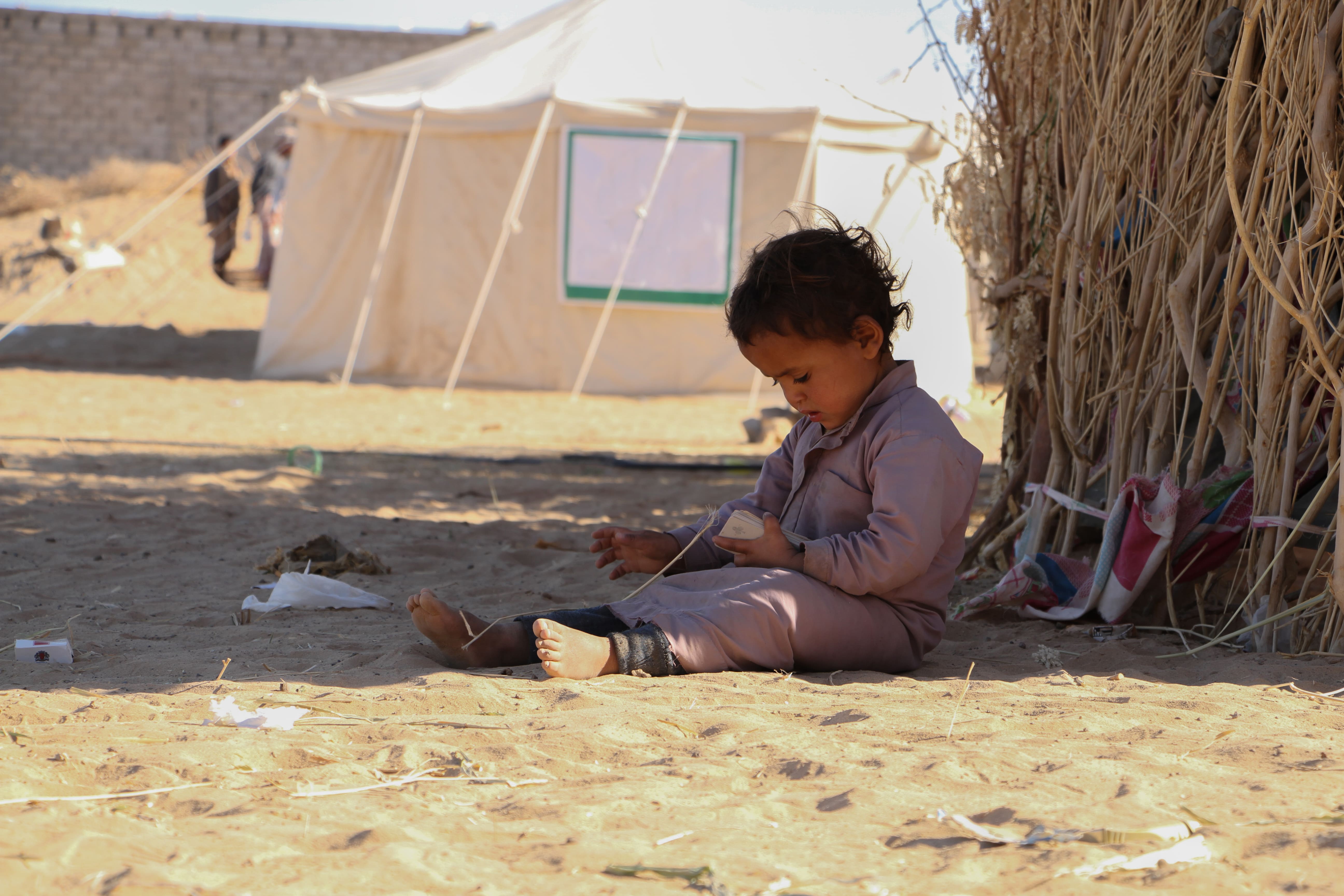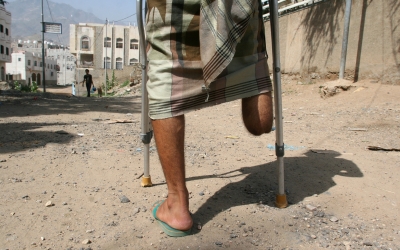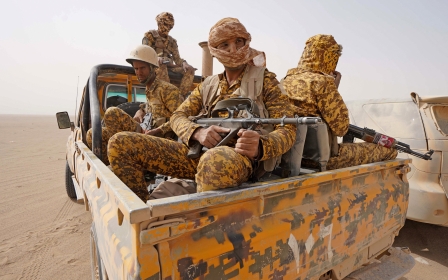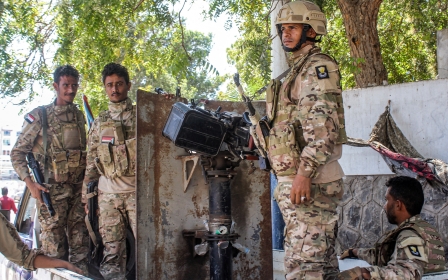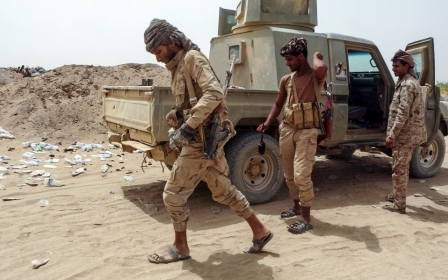Yemen: Houthis advance on Marib amid accusations of besieging civilians
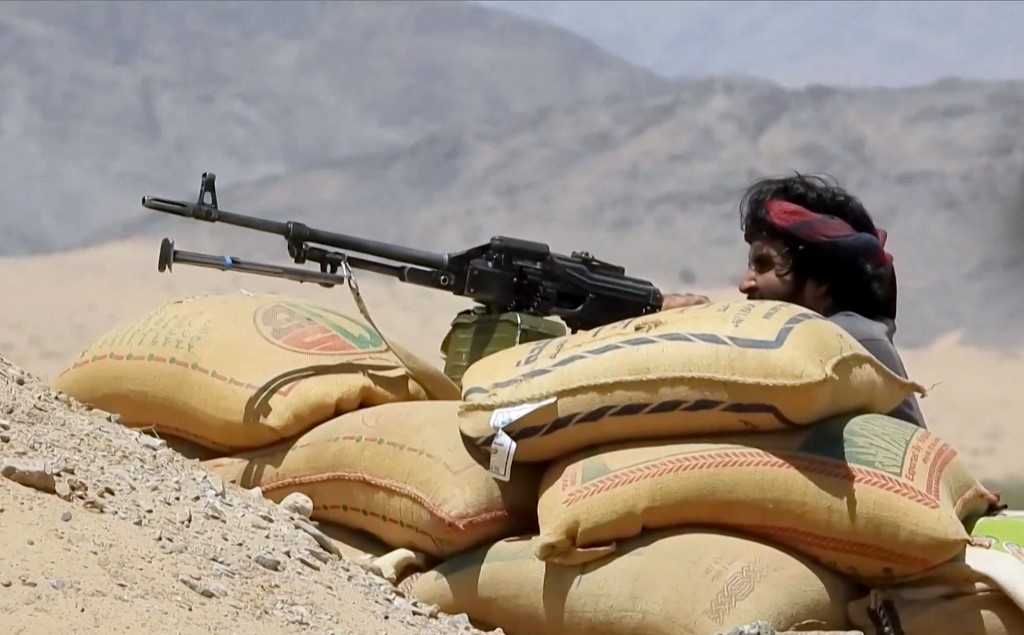
Yemen’s Houthi rebels advanced on the last northern stronghold of the internationally recognised government of President Abd Rabbuh Mansour Hadi on Thursday, in ongoing fighting for the oil-rich province of Marib.
Hundreds have been killed in fighting that began last month, with the Houthis saying on Tuesday that they had reached "the edges" of Marib city.
On Wednesday, the Saudi-led coalition backing Hadi's government said 400 Houthi fighters had died this week.
'It would be impossible for the Houthis to capture any area in the city without the support of locals... The residents want to live in peace'
- Mohammed Ali, local journalist
"We have conducted 19 operations targeting (Houthi) militia members in the past 24 hours in Abdiya, destroying 12 of their military vehicles and their losses exceeded 108 members," the state-run al-Ekhbariya television quoted the coalition as saying.
Nevertheless, the Houthis have advanced in Marib's al-Jubah district and now control most of it, residents and a loyalist fighter told MEE. Battles in the remaining areas of al-Jubah are ongoing, as well as in al-Abdiya district. Both are home to the powerful Murad tribe.
New MEE newsletter: Jerusalem Dispatch
Sign up to get the latest insights and analysis on Israel-Palestine, alongside Turkey Unpacked and other MEE newsletters
Local reports say some leaders of the Murad tribe have reached an agreement with the Houthis to keep their area safe in return for refraining from fighting the Iran-aligned movement, which has made seizing al-Jubah comparatively straightforward.
Yemeni journalist Mohammed Ali said the recent Houthi advances in Marib reflect how tribal leaders feel let down by the Saudi-led coalition.
"It would be impossible for the Houthis to capture any area in the city without the support of locals," he told MEE. The civilians are eager for the fighting to finish, no matter who the winner is.
“If there is no advance from either side, the conflict will drag on for years. The residents want to live in peace. If the government doesn’t advance on frontlines, we will see more people joining battles with the Houthis,” he added.
With this week’s advances, the Houthis now control most of Marib province. The ongoing battles are now for the city, the last safe haven for government officials and fighters.
Meanwhile, government loyalists have accused the Houthis of besieging al-Abdiya district, with around 37,000 residents unable to access markets, healthcare facilities or even leave their home.
A government health official in Marib declared al-Abdiya a “disaster area” on Thursday, after Houthi missiles targeted the only hospital there.
Most of the oil-rich north is under Houthi control now. The remaining areas - Taiz, Hodeidah, Hajjah, al-Beidha and Marib city - are divided between the Houthis and the government, with each side vying for their control.
Yemen's southern provinces are divided between the government and southern separatists, while the Houthis control parts of Shabwah.
New displacement wave
Khaldoon, a resident of Marib, told MEE there has been a new wave of displacement from al-Jubah and other conflict zones to Marib city, but that some of the city's residents have fled to other provinces.
“The battles now are very close to the city, and the Houthis took over some areas for the first time,” he told MEE. “So Marib is no longer safe. All residents are worried, even those who live in the city.”
Khaldoon said that many leaders of the Murab tribe helped the Houthis seize some areas by not fighting. He said those sheikhs now live in Houthi-controlled areas.
“Many people, including tribal leaders, have lost trust in the government and the president,” he said. “Pro-government tribal leaders have been killed in different areas in Yemen in battles with the Houthis, due to lack of government support.”
Khaldoon pointed out that Marib already has a large number of displaced people in makeshift camps. If battles arrive in the city, this displacement crisis will be much worse.
“Those in Marib city now include displaced families from Sanaa, Marib, al-Jawf and other provinces. Those who fought the Houthis in their areas and were defeated are now in Marib city."
Suroor Ayedh, newly displaced man from al-Rahabah district, now lives in a makeshift camp on the outskirts of Marib city. He told MEE that he has fled battles more than five times, most recently last week.
Ayedh said that when battle arrives at his camp, he and his family would have to move on. He didn't know where they would go, though.
Ibrahim, a loyalist fighter in Marib, confirmed that the Houthis have advanced in some areas, but claimed that most tribal leaders have remained allied to the government.
“It is not true that the Murad tribe is fighting alongside the Houthi militias,” he told MEE. “Some sheikhs indeed supported the Houthis, but the majority is against them and we are fighting the Houthis together.”
'Good news' expected in coming days
Ibrahim said that people from different provinces have joined the fight against the Houthis in Marib, and that the Saudi-led coalition is supporting them with air strikes on Houthi targets.
“We are fighting with high morale. In the coming days there will be good news about Marib and I need to send a message to the residents of Marib not to be worried about the city,” he said.
The government fighter accused the Houthis of besieging civilians in al-Abdiya district and firing missiles on it. “They target civilians with shelling to force them to surrender,” he said. “Our priority is to break the siege on al-Abdiyah.”
The Houthis have denied imposing a siege on civilians in al-Abdiya. The movement says its siege only targets government fighters.
“Ansar Allah [the Houthis] respect civilians and they want to take over Marib with the least loss among them,” Mohammed, a pro-Houthi resident of Sanaa who is originally from Marib, told MEE.
“If Ansar Allah don’t care about civilians, they can take over Marib city in one day. But the battle has taken a long time because the Houthis don’t want to harm civilians.”
Mohammed claimed that the main reason behind the recent Houthi advances is that people from Marib have been joining and supporting them to liberate their areas.
Middle East Eye delivers independent and unrivalled coverage and analysis of the Middle East, North Africa and beyond. To learn more about republishing this content and the associated fees, please fill out this form. More about MEE can be found here.


